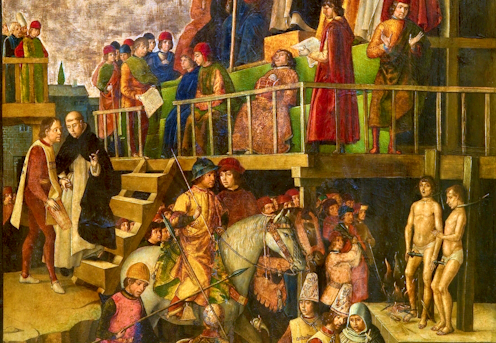Extraordinarily, the effects of the Spanish Inquisition linger to this day
- Written by Jordi Vidal-Robert, Lecturer in Economics, University of Sydney

From Imperial Rome to the Crusades, to modern North Korea or the treatment of Rohingya in Myanmar[1], religious persecution has been a tool of state control for millennia.
While its immediate violence and human consequences are obvious, less obvious is whether it leaves scars centuries after it ends.
In a new study we have attempted to examine the present day consequences of one of the longest-running and most meticulously documented persecutions of them all – the trials of the Spanish Inquisition[2] between 1478 to 1834.
The records of 67,521 trials still exist, along with indicators of their locations and places of birth and residence of the people they tried.
We find that today – two hundred years after its abolition – the locations in which the inquisition was strong have markedly lower levels of economic activity, trust and educational attainment than those in which it was weak.
Secret denunciations
Charged with combating heresy, defined as deviation from Catholic doctrine, the Inquisition extended into every strata of Spain’s society and almost every corner of its global empire.
Trials originated with secret denunciations and lasted years. Penalties ranged from mild admonishments to burning at the stake. Sentences were usually handed down in large public ceremonies – ensuring widespread publicity.
The geographical distribution of inquisitorial intensity shows widespread variation over relatively small areas, but no broad geographical patterns.

















